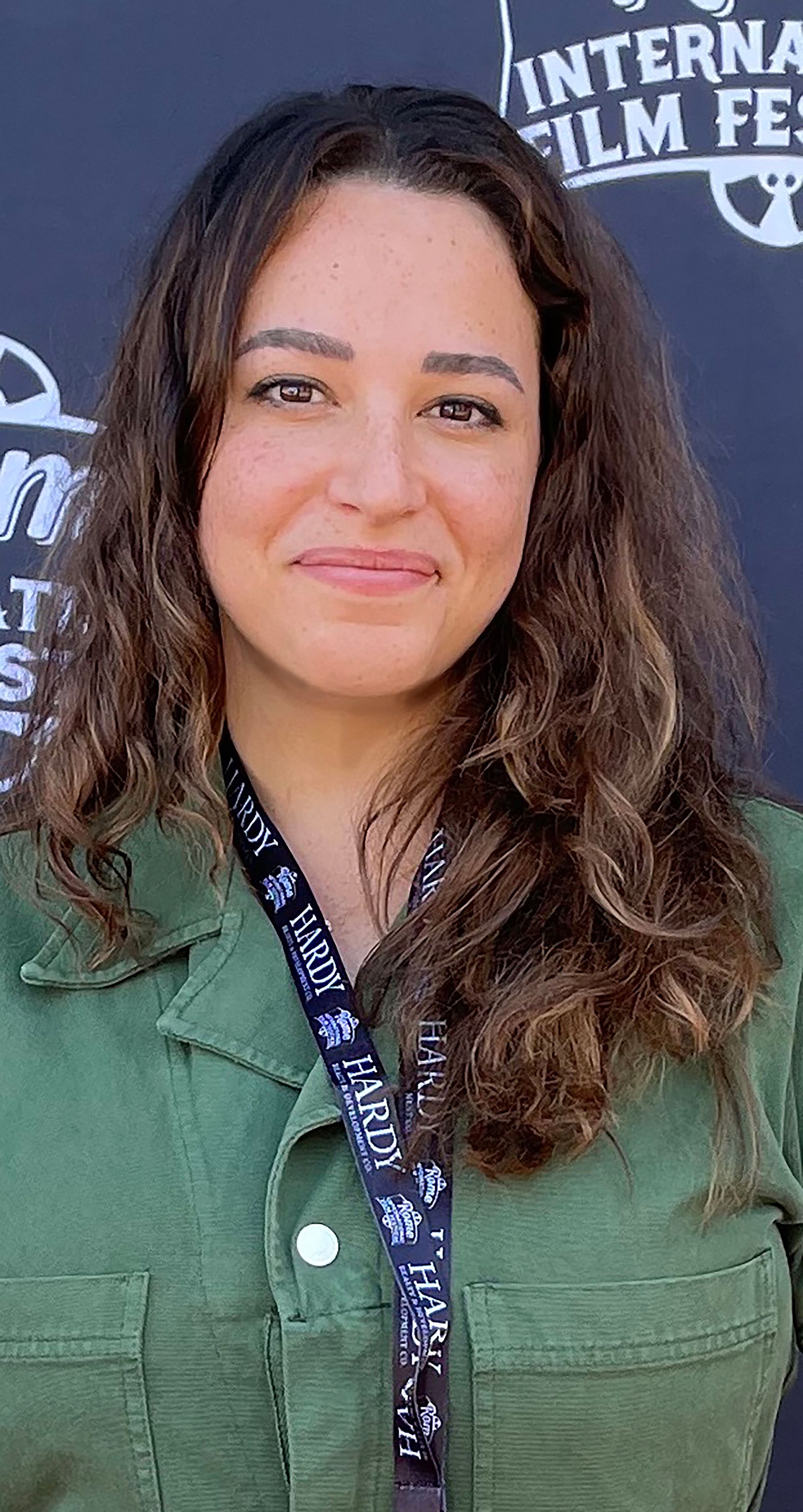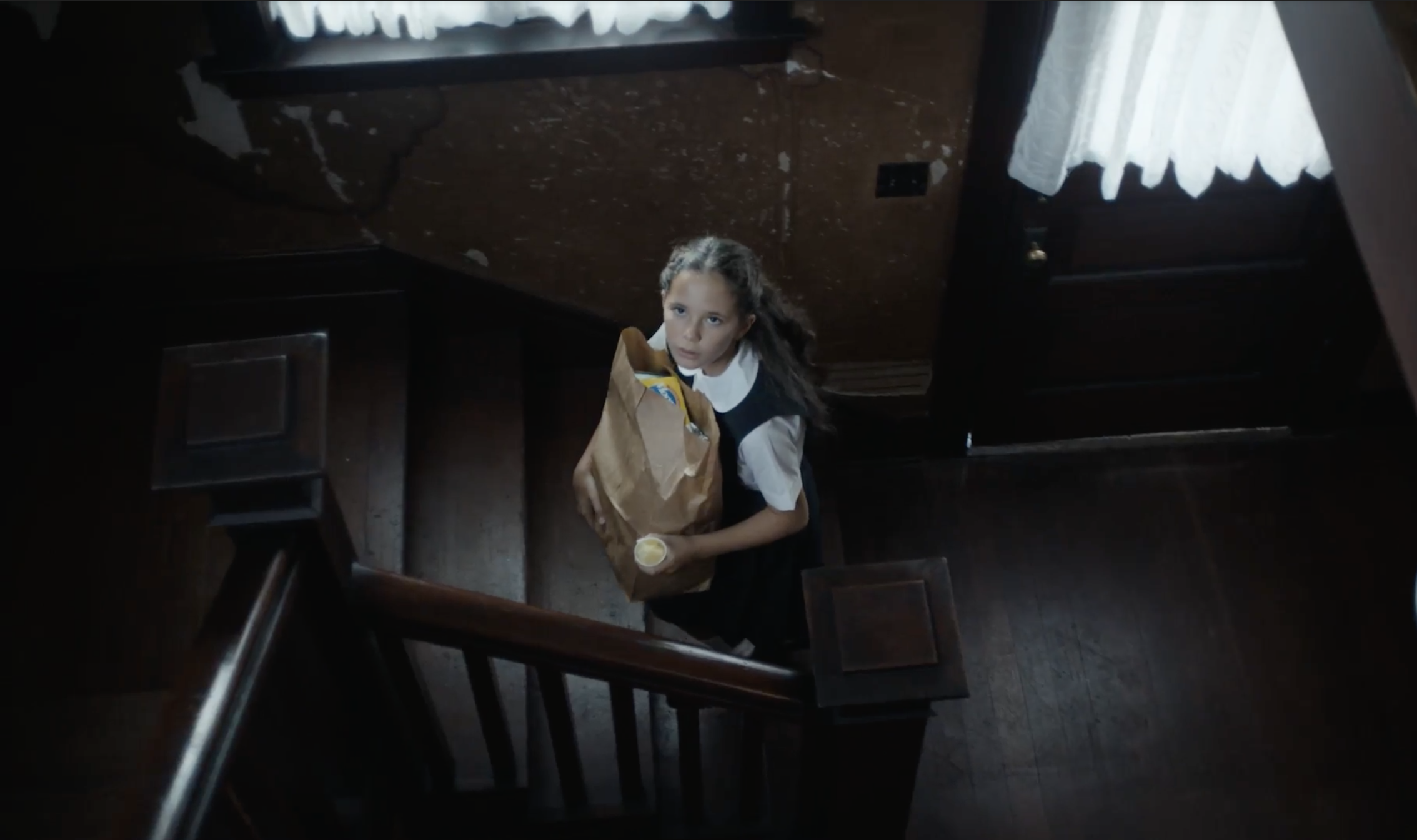
'Untold Wants': An Interview with Jessica Aquila Cymerman
Jessica Aquila Cymerman was a top 5 finalist in the 2024 Film Pipeline Short Film competition with her extraordinary short The Stairs.
I’m of the opinion that for short films, the hardest genre to make impactful is a drama. But The Stairs does so beautifully. What was the spark for this story and the initial seeds of the idea?
I am a child of immigrants and I'm married to one, so the immigrant story in America has always affected me somewhat personally. Through the lens of a family that is ingratiating themselves in this country, we learn more about our collective culture. Everything is freshly nuanced to them, as they try to navigate both living and surviving in a place with new behavior and norms.
The inspiration for this story comes from my mother's childhood living in tenement housing in Red Hook. It's sort of an amalgamation of many stories my sister and I used to hear growing up. For instance, the chair game is very real, as was Mrs. Teruli and that olive oil ritual. The seeds of the facts grew into a story about old-world matriarchal and pagan practices emboldening mother and daughter to triumph over a patriarchal authority in the church.
The mere thought of “period piece” might strike fear into the hearts of filmmakers—not only in terms of potential budget pitfalls, but in authenticity.
What was most crucial in, essentially, getting it right? And did you have to plan ahead to make sure you could secure those pieces of the puzzle before filming, or even writing? Or was it something you dealt with after the concept and script were settled?
I just wrote the story and script first, and knew I would have to figure out the logistics later. I'm no stranger to getting cheap and dirty from the theatre, and I have done plenty of period plays, so it wasn't something that intimidated me honestly.
The biggest hurdle was finding the right location. One of our tireless producers, Kate Hamilton, found this house in San Pedro that was absolutely perfect to dress as a tenement building and a bible study classroom, and our ingenious production designer Adrian Wittenberg was able to cheat the first and second floor so it looked like there were several floors. And none of it would have had the illusion of height without our master cinematographer Allie Schultz. Not to mention the most dedicated costumer I've ever worked with, Emilyna Cullen, was super specific about the pieces she pulled.
I think we got it right because of our single location, and because all the department heads were on board with achieving the mood, color, tones, feeling of the era and the place. I always make mood boards for my projects, and included this time were actual family photos—some of which we were able to use in the set dressing—that helped in our storytelling research and accuracy.

Your background is also in theatre. And it’s a long resume … Do you look at your films as microcosms of the stage? Similar techniques in storytelling, or visual style? What’s been more satisfying as a director, film or theatre—and fair enough if it’s a tie, in which case, what are the pros and cons of each?
That's a ginormous question, and one that directors historically have a hard time answering.
Ingmar Bergman said theater was his faithful wife and the movies his alluring mistress. Gender roles aside, I think this is pretty accurate. The theatre is where I trained, and the storytelling process I approach the same way as I do with film. Analysing the text and communicating with actors in both mediums is largely the same in my process. The biggest difference of course in film is the ability to turn around and adjust focal length. The choices of how to depict a moment become infinite, as opposed to dictated by the confines of a stage from a fixed distance. And I've done several plays in the round!
The gift film gives me is that it forces me to get very specific about primary movement of the camera versus secondary movement, whereas in theatre, the only movement that matters is the actors'. And I think this is where my painting background helps with composition. I love details. Eyes, lips, hands, skin. And that's where film allows me to explore that theatre doesn't.
I will say, theatre is infinitely cheaper, so there's that going for it!
Your mother is Deborah Aquila, who’s been a casting director for many years on some huge films. I’ll assume the answer is “yes,” but I’ve been self-taught to never assume, so:
Was this what drew you to the film industry growing up? And for that matter, it might explain why The Stairs is so well-cast.
We hired a brilliant Casting Director for The Stairs, Lisa Zagoria. And she found us Briella Guiza, our Rose, who is going to be a massive star. But yes, casting and working with actors is definitely something I grew up exposed to.
However, I'd say the biggest draw into this world for me was my mother's training in and relationship to the theatre. She has always and continues to cover plays in every city. I grew up as a theatre rat, going to everything as soon as it opened. The magic of storytelling is at the heart of my exposure to and work in this industry.
The theatre company you co-founded, Untold Wants (a great name, btw—yes, I know it’s a Walt Whitman line, not an original quote, but great nonetheless). What’s your aim there? What separates it from others?
I love that you know the Whitman poem! A lot of folks don't get it.
My husband, the brilliant actor Eanna O'Dowd, who plays Papa in The Stairs, and I started this theatre company in Dublin when we were living there because we wanted to put on a play, and the application for the rights to the play asked if we had a theatre company. And I said to him, do we have a theatre company? And he said, yes, I think we should. I had this list of names in my notes app of things I just liked or thought sounded pithy, and he chose Untold Wants!
The full poem is: "The untold want by life and land ne'er granted, now voyager sail thou forth to seek and find," and we found it very inspirational for a couple of kids diving in over our heads because no one was hiring us, and we needed to make our own work!
Let’s say a film director who has only had experience directing shorts, or a feature, wants to do theater. In an era where it feels like you can easily cross over into other divisions of the arts, yet also feels like it’s never been more confounding on how to do so, where would they start?
Start with how to speak to actors in their language.
Film is about the shots, theatre is about the actors. Not on my set, but typically, unfortunately. In theatre, you all build the story together. So learning how to do table work and craft story specificity with your actors is first and foremost.
Quick. First one that comes to mind, no time to rationalize or mull it over: best play you ever saw.
*Alternatively, I’ll also accept the best movie based on a play, if there’s an answer that exists beyond Angels in America.
Okay, so when I was 19, I saw Ian Rickson's The Seagull on Broadway. It was Christopher Hampton's translation, and it had Kristin Scott Thomas, Carey Mulligan, Zoe Kazan, Mackenzie Crook, and Peter Saarsgard. That is the production that made me want to be a director. It was just perfect because for the first time I understood the nuance of what Chekhov was trying to do with heartbreaking satire. And it's a style that has stuck with me since. I still have my playbill.
My favorite movie based on a play will always be Mike Nichols' Who's Afraid of Virginia Woolf! Although that Angels was pretty great!

